DIHAD HUMANITARIAN COLLEGE
College & University
Brief
Using a blended learning environment, students enrolled in the program will experience the concept of blended learning, mixing both physical and virtual classroom attendance, practical training, and visit many conferences and study sessions to achieve the highest quality of learning thus empowering, promoting, and training future humanitarian entrepreneurs with sustainable mindsets while enhancing their skills.
Selected Students will enroll in a one-year program undertaking a total of 60 credit hours, and will have the opportunity to be involved in a practical internship with one of DIHAD’s prestigious partners, and ultimately submit a thesis paper to graduate with a Master’s Degree in Sustainable Humanitarian Action.
Teaching Methods
- Physical lectures
- Online lectures
- Seminars
- Practical internship
- Study visits
- Conferences
Objective
- Obtain key concepts and practical knowledge in sustainable humanitarian action in addition to gaining insights on how to adapt to the future of humanitarian work.
- Acquire a sustainable mindset to deliver sustainable projects.
- Attain critical humanitarian management skills and knowledge.
Curriculum | 2023/2024
Subjects
- About DIHAD Foundation
- Introduction to Humanitarian Action
- Be a Positive Global Citizen
- Humanitarian Action; the issues and the actors
ECTS: 5 ECTS Delivery Method: Online
Subjects
- International Humanitarian Organisations
- International Humanitarian Law & Ethics
ECTS: 5 ECTS Delivery Method: Online
Subjects
- Technology in Humanitarian Field
- Innovation in Humanitarian Field
- The Theory of Change
- Social Entrepreneurship and CSR
ECTS: 6 ECTS Delivery Method: Online
Subjects
- Humanitarian Management
- Humanitarian Strategies and Planning
- Humanitarian Foresight and the Future
ECTS: 8 ECTS Delivery Method: Online
Subjects
- Introduction to Humanitarian Diplomacy
- IHL and Humanitarian Action
- Humanitarian International Relations
- Humanitarian Geopolitics Landscape & Diplomacy
- Modern Humanitarian Diplomacy
ECTS: 4 ECTS Delivery Method: Online
Subjects
- Leaders Protocol
- Leadership Principles
- Leadership in Action
ECTS: 8 ECTS Delivery Method: Physical
Subjects
- Sustainable Humanitarian Entrepreneurship
- Economy in the Humanitarian Field
- Sustainable Humanitarian Economy Mindset
ECTS: 8 ECTS Delivery Method: Physical
Subjects
- Internship Program
ECTS: 9 ECTS Delivery Method: Hybrid
Subjects
- Election, Preparation, and VIVA of the Master’s Thesis
ECTS: 7 ECTS Delivery Method: Hybrid
The Faculty
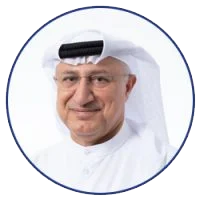
H.E. Amb. Dr. Abdulsalam Al Madani
Chairman, DIHAD Sustainable Humanitarian Organisation; Parliamentary Assembly of the Mediterranean (PAM) Roving Ambassador for the GCC
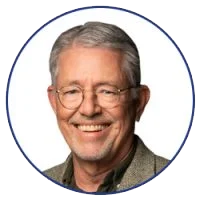
H.E. Amb. Gerhard Putman-Cramer
CEO, DIHAD Sustainable Humanitarian Foundation; Director, DIHAD International Scientific Advisory Board (DISAB); Ambassador, Permanent Delegation of the Parliamentary Assembly of the Mediterranean to the United Nations and other International Organisations in Geneva
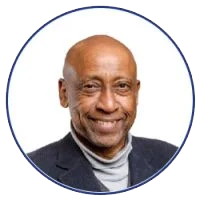
Mr. Amin Awad
United Nations Assistant Secretary General
and Former Crisis Coordinator for Ukraine; Senior Fellow, Advanced Leadership Initiative, Harvard University
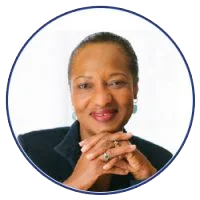
Ms. Ann Encontre
Director, the Ethics Office, United Nations High Commissioner for Refugees (UNHCR) Geneva
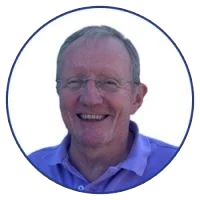
Mr. Claus Sorensen
Senior Adviser on Resilience,
Humanitarian Aid and Crisis Response, Norwegian Refugee Council; Former Director-General, ECHO
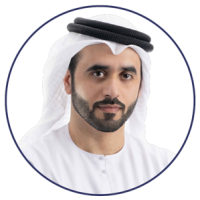
Eng. Khaled Al Attar
Director-General of DIHAD Sustainable Humanitarian Organisation
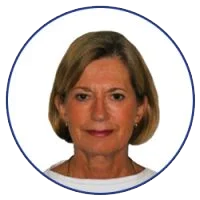
Ms. Magda Ninaber van Eyben
Senior Humanitarian Aid Advisor

Mr. Mario Stephan
Head of Philanthropy Diversification and Impact,
Doctors without Borders / Médecins Sans Frontières (MSF)
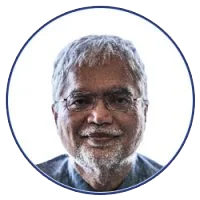
Dr. Mukesh Kapila
Professor Emeritus,
Global Health & Humanitarian Affairs, University of Manchester; Senior Adviser to the Parliament Assembly for the Mediterranean (PAM); Adviser on the Strategic and Technical Advisory Group for Antimicrobial Resistance for the World Health Organization (WHO)
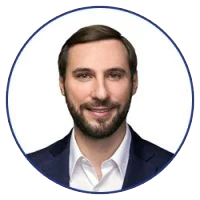
Dr. Paolo Petrocelli
Director General,
Stauffer Center for Strings; Founder & President, Euro Mediterranean Music Academy – EMMA for Peace; Honorary President & Co-Founder, Italian Youth Association for UNESCO

Prof. Randolph Kent
Director, Humanitarian Futures; Director and Senior Research Associate, Royal United Services Institute; Visiting Professor, African Leadership Centre; King’s College, London
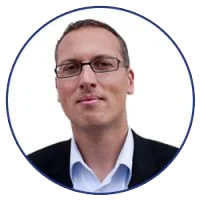
Drs. Yannick du Pont
Member of the Development Cooperation Committee at the Dutch Advisory Council on International Affairs; Founder of Spark, Amsterdam
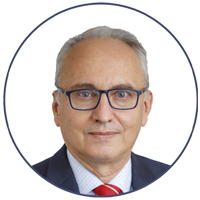
H.E. Amb. Dr. Zoran Jolevski
Former Minister of Defense; Vice Rector, European University – Skopje; Senior Fellow, Harvard University; an Ambassador to the United States and Secretary General of the Cabinet of the late President Boris Trajkovski
Guest Lecturers

Mr. Adrian Kitimbo
Research Officer,
UN Migration Agency (IOM); Research Associate at GIBS, University of Pretoria
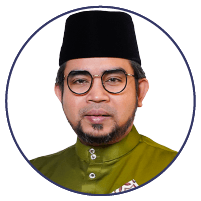
Honorary Comissioner (C.D.)
(Dr) Ahmad Sani Araby AlKahery
Chief Executive Officer
Malaysia Consultative Council of Islamic Organisation (MAPIM MALAYSIA)
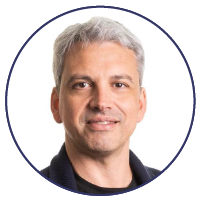
Dr. Andrea Atzori
CEO, Doctors with Africa CUAMM UK

Ms. Clare Dalton
Head of Delegation, International Committee of the Red Cross (ICRC), UAE

Mr. David Harland
Executive Director of the Centre for Humanitarian Dialogue;
Member of the United Nations Secretary-General’s High-Level Advisory Board on Mediation, United Nations

Dr. Eric de Roodenbeke
International Consultant; Past Chief Executive Officer,
International Hospital Federation (IHF)
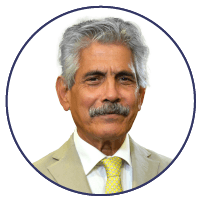
Mr. Giuseppe Saba
Chief Executive Officer of International Humanitarian City; Founder of UNHRD Network and former Network Coordinator

H.E. Hon. Gennaro Migliore
Board Member and Director, Centre for Global Studies – CGS
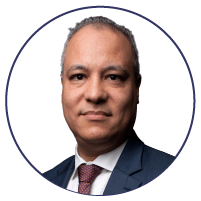
Mr. Khaled Khalifa
Senior Advisor and Representative to the GCC Countries, United Nations High Commissioner for Refugees (UNHCR)

Dr. Marie McAuliffe
Head, Migration Research and Publications Division;
Editor, World Migration Report, Department of Policy and Research, International Organization for Migration (IOM)
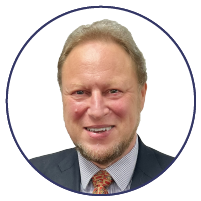
Professor Dr. Michael A. Köhler
Grand Bargain Ambassador; Professor at the College of Europe, Bruges; Deputy Director-General, European Commission (ret.)
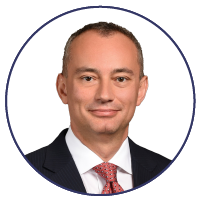
H.E. Nickolay Mladenov
Director General of the Anwar Gargash Diplomatic Academy
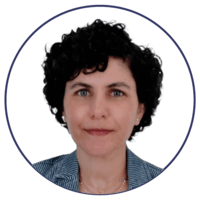
Dr. Sama Al-Shawi
Legal Advisor, International Committee of the Red Cross (ICRC), UAE
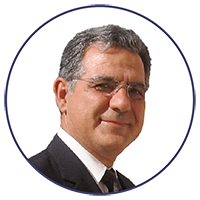
H.E. Amb. Sergio Piazzi
Secretary-General, Parliamentary Assembly of the Mediterranean (PAM)
Outcomes
By joining DIHAD Humanitarian College you’ll have a chance to upskill your humanitarian talents and obtaining a degree in Sustainable Humanitarian Action. The program provides candidates with a chance to meet top names in the field which qualifies people from around the world to prepare and respond to crises wherever they are, in addition to refining leadership skills in aims to deliver relief to people on a worldwide scale and altering society.
DIHAD Humanitarian College also builds a highly skilled workforce equipped to prepare and respond more effectively and efficiently to catastrophes from all kinds by curating and sharing top notch humanitarian knowledge and building a network of aspiring future pioneers of hope.
Admission Requirements
- Candidates must have obtained, a Bachelor’s degree program with a minimum of 3.0 GPA on a scale of 4.0.
- Candidates are required to have a recognized qualification in the English language for example a score of 6.0 in IELTS or an equivalent of 500 in TOFEL.
- A minimum of 2 years of experience in the humanitarian field or a minimum of 2000 certified volunteering hours in the humanitarian field.
- All qualified applicants must pass a personal interview with the committee.
- Letter of recommendation.
Career Opportunities
The Master’s Degree in Sustainable Humanitarian Action offers a wide range of career opportunities. The program will qualify graduates to start or boost their existing careers within Non-Governmental Organisations, International Humanitarian Organizations, United Nations agencies, National Government Authorities, Red Cross/Red Crescent Movement, Humanitarian Foundations and Charities, Academic Institutions, or the Private Sector. This will ultimately give students the chance to become specialists in humanitarian sustainability and a wide range of career opportunities become available such as field project/program officers, managers and directors, consultants, and even corporate social responsibility (CSR) departments in private companies.




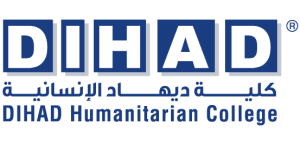

 Master’s Schedule – 2023/2024
Master’s Schedule – 2023/2024


